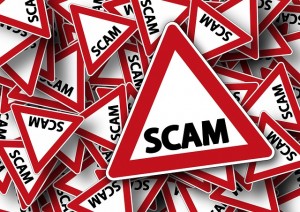
Avoiding crowdfunding scams is not an easy task. The added difficulty is inherent to crowdfund itself, afterall most projects are products or services being offered by startups, still in their earlier stages of development. Such companies do not exist for a long time, so it can be difficult to separate the good from the bad ones.
Whenever you put money in some crowdfunding project, you should be aware that there is a risk involved, even if the company is not scamming you. It is not rare to find projects run by serious companies that do not succeed and end up refunding their backers. So the question you must ask yourself is: what if the project goes wrong? Will I get my money back?
In order to spot potential scams, you should do a background check. You should look beyond the project page. What is not present in the crowdfunding platform makes the difference, no matter how well the page looks. Here goes a somewhat long checklist to help you:
- Does the company really exist? Is it formally incorporated in your country?
- Who are the founders? Do they list the project in their Linkedin or Facebook page?
- Do they have a website?
- Does their website list an actual address or is it hidden behind an anonymous plan?
- Is the website professionally produced?
- Is there any talk about the company in forums? Do the people talking about it have a strong presence in the community or do they have few posts?
- Is there a video? How well is it produced? Does it show actual products or people or is it just about concept art and sketches?
- Have the founders taken any step to protect their intellectual property such as trademark registration and provisional patents? Did you check the documents?
- Is the product being offered really an innovation or can you spot a similar one in a Chinese marketplace, such as Aliexpress or Alibaba? Many people who start a crowdfunding campaign buy their already existing innovations from merchants on those platforms
- Do they have any presence in the media? Have they issued a press release or been featured in a news website?
- If you are investing in equity crowdfunding, has the portal vouched for the project?
- Are the perks offered compatible with the offer? Are they too good or cheap to be true?
Checking for all the signs of scam can be time consuming. However, the more money you put in a project, the more careful you should be. While this checklist will not guarantee that you are not a victim (nor that the project will not fail for any reason), you can spot most scams with it. Afterall, people who are building a real business are serious about it and have taken proper measures to make sure they can deliver what they promised and build a brand in the process.
Source: ICNW




